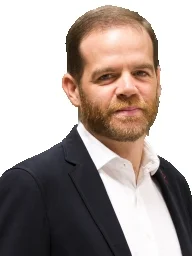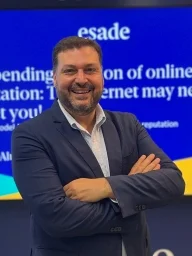‘Leadership with purpose’ and ‘emotional intelligence’: Esade Alumni identifies new leadership qualities in response to economic challenges
Esade Alumni has identified the main leadership qualities needed to deal with the challenges facing companies today. Leadership with purpose (66.1%), emotional intelligence (63.4%), social and environmental engagement (51.8%) and critical thinking (48.2%) are the four skills most sought after for running businesses in the new landscape, according to a survey on leadership, sustainability and economic challenges conducted amongst more than one hundred leaders in the framework of the Esade Alumni Annual Conferences entitled ‘Sharing our present. Building our future’, which brought together more than 1,500 former Esade students in the different editions held throughout Spain. According to Esade alumni, new leadership requires communication (41.1%), digital skills (34.8%), online team management (33.9%), analytics (29.5%), ability to think outside the box (26.8%) and other skills such as humility and flexibility (4.5%).
Inflation: the main challenge facing the economy
When asked about the present-day challenges facing Spain’s post-pandemic economy, alumni were quite clear: inflation is the greatest cause for concern according to 73.2% of respondents, followed by global supply chain disruptions (54.5%) and geopolitical risks (49.1%). The other economic obstacles mentioned by the Esade community were the impact of new technologies (13.4%), new consumer behavior (5.4%) and other variables such as higher interest rates, political instability, economic deficit, levels of sustainability and the real estate bubble (4.5%).
One of the recent opportunities for Spain’s economy that has emerged after the pandemic has been the EU funds granted by the EU Commission. Almost half (46.4%) of Esade’s leaders believe that the impact of this investment package will help drive and transform Spain’s economy, whilst the same number of respondents (46.4%) think the exact opposite, i.e., that the EU funds received by businesses in Spain will not help drive a more sustainable and digital economy.
In their awareness of the conflict between Russia and Ukraine, Esade alumni consider that the consequences of this invasion that could affect their companies most are the rising prices of raw materials (82.1%), reliance on Russian energy (67.9%), ensuing deglobalization (23.2%), humanitarian crisis (17.9%) and other factors such as consumer uncertainty causing demand to fall, disruptions in the capital market, delays in delivery of materials, international commerce and the prices set by the government (8.9%). On account of the Russian invasion of Ukraine, two of every ten (22.3%) leaders say they will incorporate new tools, services or professionals to anticipate and manage the geopolitical risks that might affect business in the future, 60.7% say they will not, and the rest (17%) have not yet taken a decision.
Commitment to measuring and reducing carbon footprint
Esade Alumni, a global community of more than 67,000 responsible leaders, is firmly committed to contributing to business advancement and creating a fairer, more sustainable world. The alumni voiced their opinions about sustainability in particular: 74% of the companies where they work already measure or are assessing their carbon footprint, and the other 26% have not calculated their environmental impact.
As regards sustainability, it must be said that the latest Esade Alumni conference held in Barcelona was the second “sustainable conference” to measure and offset its carbon footprint. In this respect, and with a view to offsetting the emissions generated, Esade Alumni has financed a project to generate 56.25 MW of wind power in the Indian cities of Tirunelveli and Coimbatore. This project, a clean development mechanism compliant with the standards of the UN Framework Convention on Climate Change, means a reduction in the use of fossil fuels, the creation of jobs in local communities and improvements to their on-going energy supply.




